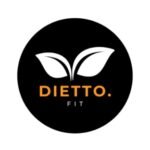Pre and post pregnancy nutrition
Our Solutions
- Sports Nutrition
- Renal Nutrition
- Oncology Nutrition
- Corporate Nutrition
- Cardiovascular Disease Diet
- Therapeutic nutrition
- Naturopathy
- Gerontology and geriatric
- Pediatric nutrition
- Gastrointestinal (GI) disease nutrition
- Liver and pancreas
- Pancreas Health and Nutrition
- Obesity and underweight nutrition
- Infections and fevers nutrition
- Anaemia nutrition
- Pre and post pregnancy nutrition
Health Conditons

Pre and post pregnancy nutrition
Pre-pregnancy, pregnancy, and post-pregnancy nutrition are all critical stages that require attention to specific nutrient needs to support the health of both mother and baby. A balanced diet rich in essential vitamins and minerals, adequate hydration, and mindful dietary practices are fundamental to achieving optimal health outcomes during these stages.
Pre-Pregnancy Nutrition
Objectives: Optimize health, support fertility, and prepare the body for a healthy pregnancy.
Key Nutrients and Recommendations
- Folic Acid:
- Importance: Prevents neural tube defects in the developing fetus.
- Recommendation: 400-800 micrograms per day from supplements or fortified foods, in addition to dietary sources.
- Iron:
- Importance: Supports healthy blood and reduces the risk of anemia.
- Recommendation: Ensure adequate intake through diet or supplements if necessary.
- Calcium:
- Importance: Essential for bone health.
- Recommendation: 1,000 mg per day.
- Omega-3 Fatty Acids:
- Importance: Supports fetal brain and eye development.
- Recommendation: Include omega-3 rich foods in the diet; consider supplements if dietary intake is insufficient.
- Healthy Weight:
- Importance: Being at a healthy weight can improve fertility and reduce the risk of complications during pregnancy.
- Strategy: Aim for a balanced diet and regular physical activity to achieve and maintain a healthy weight.
Pregnancy Nutrition
Objectives: Support fetal development, maintain maternal health, and prepare for labor and delivery.
Key Nutrients and Recommendations
- Folic Acid:
- Importance: Continued importance for preventing neural tube defects.
- Recommendation: 600 micrograms per day.
- Iron:
- Importance: Increased blood volume and support for fetal growth.
- Recommendation: 27 mg per day.
- Tip: Combine iron-rich foods with vitamin C-rich foods to enhance absorption.
- Calcium:
- Importance: Fetal bone development and maternal bone health.
- Recommendation: 1,000 mg per day.
- Protein:
- Importance: Supports fetal growth and maternal tissue expansion.
- Recommendation: 75-100 grams per day.
- Omega-3 Fatty Acids:
- Importance: Continued support for fetal brain and eye development.
- Recommendation: At least 200-300 mg of DHA per day.
- Vitamin D:
- Importance: Supports calcium absorption and bone health.
- Recommendation: 600 IU per day.
- Fruits and Vegetables:
- Importance: Provide essential vitamins, minerals, and fiber.
- Recommendation: At least 5 servings per day.
- Hydration:
- Importance: Supports increased blood volume and amniotic fluid.
- Recommendation: Aim for at least 8-10 cups of water per day.
Dietary Tips
- Small, Frequent Meals: Helps manage nausea and maintains energy levels.
- Avoid Certain Foods: Limit or avoid raw or undercooked seafood and meats, unpasteurized dairy products, and high-mercury fish
- Limit Caffeine: Keep caffeine intake to under 200 mg per day
- Alcohol: Completely avoid alcohol during pregnancy.
Post-Pregnancy Nutrition
Objectives: Support recovery from childbirth, promote breastfeeding, and restore pre-pregnancy health.
Key Nutrients and Recommendations
- Protein:
- Importance: Supports tissue repair and milk production.
- Recommendation: Similar to pregnancy, around 75-100 grams per day.
- Iron:
- Importance: Replenishes iron stores depleted during childbirth.
- Recommendation: Continue to focus on iron-rich foods or supplements as needed.
- Calcium:
- Importance: Essential for maternal bone health and breastfeeding.
- Recommendation: 1,000 mg per day.
- Omega-3 Fatty Acids:
- Importance: Supports maternal health and breastfeeding.
- Recommendation: Continue with at least 200-300 mg of DHA per day.
- Hydration:
- Importance: Essential for milk production and overall health.
- Recommendation: Aim for at least 8-12 cups of water per day.
- Balanced Diet:
- Importance: Ensures adequate nutrient intake to support recovery and breastfeeding.
- Recommendation: Continue to eat a variety of fruits, vegetables, whole grains, lean proteins, and healthy fats.
Special Considerations
- Breastfeeding:
- Increased Caloric Needs: Breastfeeding mothers need an additional 300-500 calories per day.
- Nutrient-Dense Foods: Focus on nutrient-dense foods to meet increased nutritional needs.
- Postpartum Recovery:
- Gradual Weight Loss: Aim for gradual weight loss if needed, about 1-2 pounds per week.
- Supportive Foods: Include foods rich in vitamins and minerals to support healing and energy levels.
- Mental Health:
- Omega-3s and B Vitamins: These nutrients can support mood and mental health.
- Seek Support: Address any signs of postpartum depression with a healthcare provider
